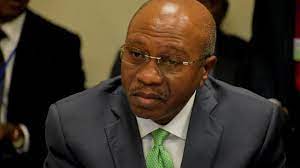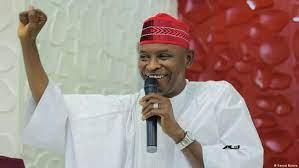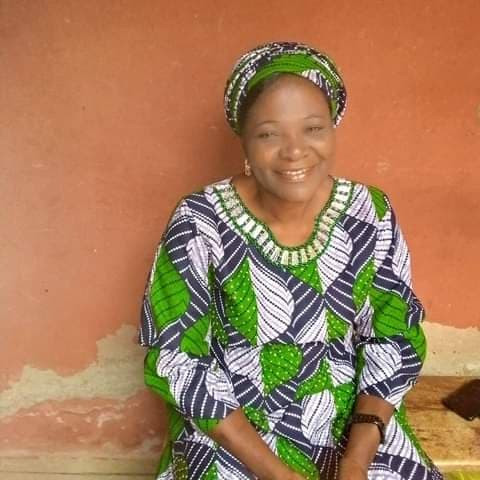A Federal High Court in Lagos has scheduled Thursday, August 17, for its decision regarding an application made by the Federal Government. The government is seeking to withdraw the charge of “illegal possession of a firearm” that was previously filed against Godwin Emefiele, the suspended governor of the Central Bank of Nigeria.
Justice Nicholas Oweibo has scheduled a new date following deliberations on arguments presented by the Director of Public Prosecution (DPP) of the Ministry of Justice, Mohammed Abubakar, and Senior Advocate of Nigeria, Joseph Daudu, who represents Emefiele.
During the previous court session on August 10, Justice Oweibo had adjourned the proceedings until today, August 15. The purpose of this adjournment was to facilitate further discussions concerning the applications put forth by Godwin Emefiele, the suspended Governor of the Central Bank of Nigeria. Emefiele’s applications were aimed at preventing the Federal Government from continuing to detain or prosecute him on charges related to the alleged illegal possession of a firearm and ammunition, as well as any other charges.
The defendant, Emefiele, also sought a court order that would absolve him of all allegations brought forward by the Government. These allegations were considered by Emefiele as being in direct defiance of the court’s existing bail orders granted on July 25, 2023. Additionally, Emefiele requested an order to restrain the Federal Government from benefiting from any legal accommodations from the courts unless and until it adheres to the terms outlined in the bail ruling.
On its part, the Federal Government submitted an application of its own, requesting permission to appeal the bail ruling and requesting a suspension of the court proceedings while the appeal is under consideration.
When the matter was brought up today, the Director of Public Prosecutions (DPP) presented an oral application to the court seeking the withdrawal of the two-count charge against the suspended Governor of the Central Bank of Nigeria (CBN).
The DPP informed the court that this application was made under the provisions of Sections 174 (1) (c) (2) of the Constitution and Section 108 (2) (4) of the Administration of Criminal Justice Act, 2015. The decision was prompted by “emerging facts and circumstances” that necessitate further investigation. The DPP earnestly requested the judge’s approval for this application.
Contrary to the DPP’s stance, the defense counsel, Joseph Daudu, a former President of the Nigerian Bar Association, voiced his disagreement.
In objection, Daudu contended that such an application could not be presented verbally. He further argued that the Prosecution must rectify its non-compliance with the court’s bail order issued on July 25 for his client before the application could even be considered for review.
Daudu remarked, “There is currently no application before the court. What the Director of Public Prosecutions (DPP) is attempting is to seek a nolle prosequi, which must be formally submitted in writing. The government’s request cannot be presented verbally. The provisions within the ACJA that have been referenced do not exist in isolation; they are subject to the supremacy of the constitution.
Although acknowledging the absence of an Attorney General of the Federation (AGF) at present, the principal counsel for the defendant cited Section 174 (3) of the Constitution. This section delineates the authority of the AGF to delegate nolle prosequi powers to any of their officers.
“We vehemently oppose this application due to the prosecution’s non-compliance with the court’s orders pertaining to the defendant’s bail. We contend that the court should withhold consideration until the prosecution rectifies their disregard for the court’s directives. No further proceedings should be undertaken until the issue regarding the court’s integrity is resolved. We stand at a critical juncture and must prevent any potential misuse of the legal process,” articulated Daudu.
After considering the arguments presented by both parties, Justice Oweibo expressed surprise at the unexpected nature of the Federal Government’s application. He subsequently adjourned the proceedings until Thursday, August 17, granting time for a comprehensive evaluation of the arguments and the drafting of a ruling.
Following the court session, the Director of Public Prosecutions (DPP) spoke with journalists, explaining the decision to withdraw the charges due to emerging facts requiring further investigation. The DPP hinted at the possibility of additional charges and counts in the future.
Addressing the legal technicalities, the DPP made a clear distinction between Sections 107 and 108. While Section 107 outlines a written application for withdrawal, Section 108 lacks specific guidance on the mode, affording prosecutors the authority to approach the judge. The DPP emphasized that their application was in accordance with Section 108.
Additionally, the DPP clarified that the suspended CBN Governor, despite being in custody, had maintained uninterrupted access to legal counsel and family members.
Regarding the court order’s alleged disobedience, the DPP asserted that their actions were not in defiance. He explained that the court’s order had two aspects: granting bail and temporary custody within the Correctional Service until bail conditions were met. The transfer from one agency to another required administrative processes, contributing to the delay. Furthermore, ongoing investigations and another pending charge at the FCT High Court added complexity, causing delays in complying with the court’s directive.
Regarding the pending charge at the FCT, the DPP revealed the filing of a 20-count charge against the defendant, encompassing allegations of unlawful procurement under the ICPC Act and conferring unlawful advantages.
Commenting on the alleged charge against Emefiele, his lawyer, Daudu, SAN, countered that they had not received any official documentation and considered it fictional until presented with evidence.
Daudu, SAN, further addressed the issue of disrespect toward the court. He emphasized that such behavior should not be overlooked and stated that the court convened to address this issue. He argued that before any other steps, including charge withdrawal, could be taken, the underlying matter of disrespect must be resolved. Daudu, SAN, expressed his belief that the courts should not be treated lightly or abused and highlighted the criteria outlined by the constitution for withdrawing charges, stressing the importance of public interest and justice.
In conclusion, Daudu, SAN, stressed that the disrespectful actions toward the court needed to be addressed before proceeding with any legal actions, including charge withdrawal.




